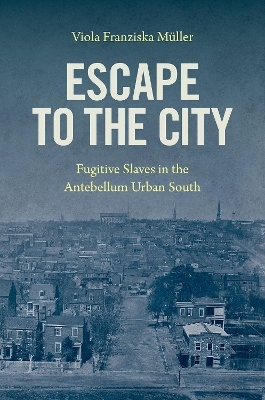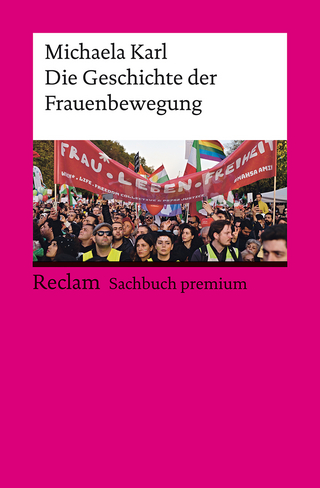
Escape to the City
Fugitive Slaves in the Antebellum Urban South
Seiten
2022
The University of North Carolina Press (Verlag)
978-1-4696-7106-2 (ISBN)
The University of North Carolina Press (Verlag)
978-1-4696-7106-2 (ISBN)
Examines runaways who camouflaged themselves among the free Black populations in Baltimore, Charleston, New Orleans, and Richmond. Viola Franziska Muller reveals how urbanization, work opportunities, and the interconnectedness of free and enslaved African Americans determined how successfully runaways could remain invisible to authorities.
Viola Franziska Muller examines runaways who camouflaged themselves among the free Black populations in Baltimore, Charleston, New Orleans, and Richmond. In the urban South, they found shelter, work, and other survival networks that enabled them to live in slaveholding territory, shielded and supported by their host communities in an act of collective resistance to slavery. While all fugitives risked their lives to escape slavery, those who fled to southern cities were perhaps the most vulnerable of all. Not dissimilar to modern-day refugees and illegal migrants, runaway slaves that sought refuge in the urban South were antebellum America's undocumented people, forging lives free from bondage but without the legal status of freedpeople. Spanning from the 1810s to the start of the Civil War, Muller reveals how urbanization, work opportunities, and the interconnectedness of free and enslaved African Americans in each city determined how successfully runaways could remain invisible to authorities.
Viola Franziska Muller examines runaways who camouflaged themselves among the free Black populations in Baltimore, Charleston, New Orleans, and Richmond. In the urban South, they found shelter, work, and other survival networks that enabled them to live in slaveholding territory, shielded and supported by their host communities in an act of collective resistance to slavery. While all fugitives risked their lives to escape slavery, those who fled to southern cities were perhaps the most vulnerable of all. Not dissimilar to modern-day refugees and illegal migrants, runaway slaves that sought refuge in the urban South were antebellum America's undocumented people, forging lives free from bondage but without the legal status of freedpeople. Spanning from the 1810s to the start of the Civil War, Muller reveals how urbanization, work opportunities, and the interconnectedness of free and enslaved African Americans in each city determined how successfully runaways could remain invisible to authorities.
Viola Franziska Muller is a social historian at the Bonn Center for Dependency and Slavery Studies at the University of Bonn, Germany.
| Erscheinungsdatum | 02.09.2022 |
|---|---|
| Zusatzinfo | 4 halftones, 5 maps, 1 graph, 7 tables |
| Verlagsort | Chapel Hill |
| Sprache | englisch |
| Maße | 155 x 235 mm |
| Gewicht | 363 g |
| Themenwelt | Sachbuch/Ratgeber ► Geschichte / Politik ► Allgemeines / Lexika |
| Geisteswissenschaften ► Geschichte ► Allgemeine Geschichte | |
| Geisteswissenschaften ► Geschichte ► Regional- / Ländergeschichte | |
| Sozialwissenschaften ► Ethnologie | |
| Sozialwissenschaften ► Soziologie | |
| ISBN-10 | 1-4696-7106-9 / 1469671069 |
| ISBN-13 | 978-1-4696-7106-2 / 9781469671062 |
| Zustand | Neuware |
| Haben Sie eine Frage zum Produkt? |
Mehr entdecken
aus dem Bereich
aus dem Bereich
die Reise der Menschheit : zwischen Aufbruch und Scheitern
Buch | Softcover (2023)
Ullstein Taschenbuch Verlag
14,99 €


